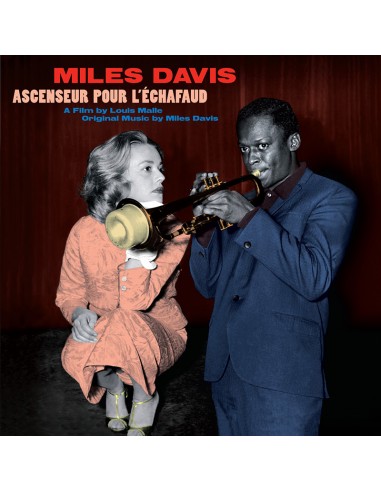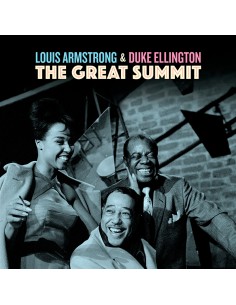Ascenseur Pour L'Echafaud
Miles Davis20-PAGE BOOKLET CD EDITION
INCLUDES 5 BONUS TRACKS
INCLUDES NEW SPECIALLY PREPARED LINER NOTES BY PENGUIN GUIDE TO JAZZ'S WRITER BRIAN MORTON AND BY PARIS'S PRESTIGIOUS JAZZ MAGAZINE
“A kind of mythology sprang up around the performances, which involved Miles Davis working without his regular group, and with just the exiled Kenny Clarke from home. Fans have pored over the recordings with more detailed attention than most soundtrack albums ever receive, treasuring such details as the little fleck of skin from the trumpeter’s lip that changes the timbre of his instrument on one cue. The recording and the circumstances of its making fitted the idea of the jazz improviser as an existential loner, always on the outside of society, making beautiful or heroic gestures out of nothing.” - PENGUIN GUIDE TO JAZZ
“Beyond the music’s fascinating minimalism is Miles’ unique sound, which is both distant and close, and absolutely bewitching even 60 Years later. “Miles’ sound”, with or without the mute, would become instantly recognizable. The dark and luminous notes of the celebrated, fabulous “Générique” are today inseparable from Jeanne Moreau’s face, and from her nocturnal wandering through the streets of the French capital. This is cinematic jazz.” - JAZZ MAGAZINE
PERSONNEL:
MILES DAVIS- trumpet on all tracks, plus:
ON TRACKS [1-10]: FILM SOUNDTRACKS: ASCENSEUR POUR L' ÉCHAFAUD.
Barney Wilen - tenor sax
René Urtreger - piano
Pierre Michelot - bass
Kenny Clark - drums
Paris, December 4 & 5, 1957.
ON TRACKS [11-13]: THE MILES DAVIS SEXTET
John Coltrane- tenor sax
Juian "Cannonball" Adderley - alto sax
Bill Evans - piano
Paul Chambers - bass
Jymmy Cobb - drums
New York, May 26, 1958
TRACKS:

01. GÉNÉRIQUE
02. L’ASSASSINAT DE CARALA
03. SUR L’AUTOROUTE
04. JULIEN DANS L’ASCENSEUR
05. FLORENCE SUR LES CHAMPS-ÉLYSÉES
06. DÎNER AU MOTEL
07. EVASION DE JULIEN
08. VISITE DU VIGILE
09. AU BAR DU PETIT BAC
10. CHEZ LE PHOTOGRAPHE DU MOTEL

11. ON GREEN DOLPHIN STREET
12. FRAN-DANCE
13. STELLA BY STARLIGHT
14. OLD FOLKS (*)
15. I THOUGHT ABOUT YOU (*)
16. ‘ROUND MIDNIGHT (*)
17. SOMETHING I DREAMED LAST NIGHT (*)
18. THERE IS NO GREATER LOVE (*)
(*) BONUS TRACKS
TOTAL TIME: 74:09 Min
- Format
- CD
- Discs
- 1
- Label code
- 170047
 Cookie preferences
Cookie preferences























































